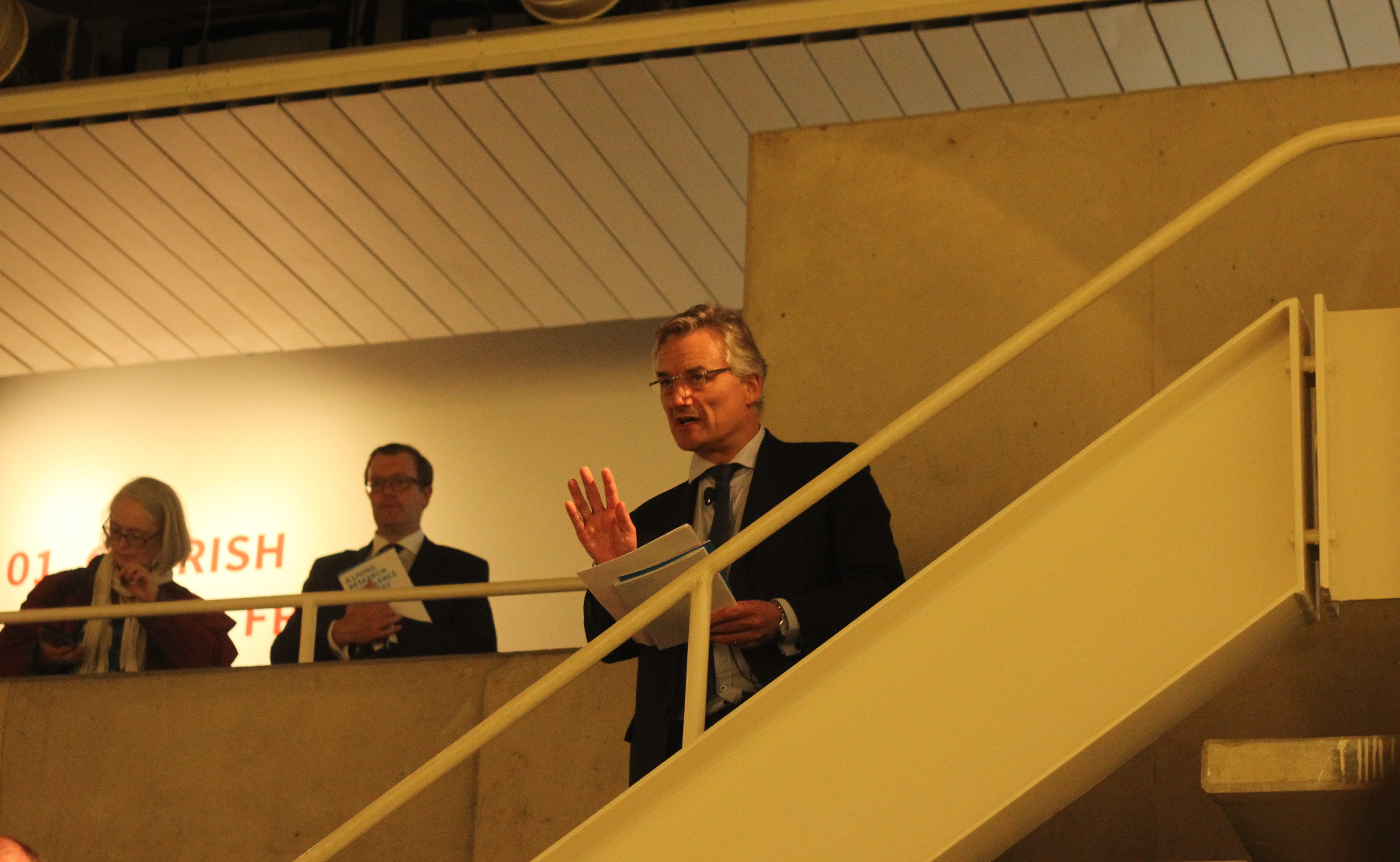Trinity’s success in securing research funding has allowed the college to pull ahead of other universities, Provost Patrick Prendergast outlined at the launch of the first ever Research Charter and Research Excellence Strategy for Trinity in the Douglas Hyde today.
The Research Charter outlines seven principles College is to follow to guide research in Trinity, which were printed on the walls of the Douglas Hyde. The Charter’s principles include positioning research at the heart of Trinity, fostering research talent and leadership, and broadening Trinity’s global impact. The Charter was developed over the first half of 2018, and took over 60 meetings to create.
The Living Research Excellence Strategy is based on the Charter’s principles and outlines a framework to guide the steps College will take with regards to research. The Research Strategy, a 38-page document, outlines broad aims for furthering research in Trinity and gives some specific suggestions to achieve these aims.
Launching the strategy, Prendergast said: “By creating the first ever formal Research Strategy and Charter in the history of the university, we are reaffirming that research and scholarship are at the heart of everything we do.”
Professor Linda Doyle, Dean of Research, said that the launch was a “very special occasion and worth celebrating”. Explaining the creation of the Charter, Prof Doyle said: “When we started the process it was very clear…that there was a need to reassert our principles and what we stood for research-wise.”
“I think the principles [in the Charter] sum up what research means to us and what is at the heart of this university,” she said. Once the Charter was created, the Excellence Strategy was drawn up, she explained.
Creating a strategic Dean of Research fund for seeding and supporting research is among the suggested actions in the Research Excellence Strategy document. Reviewing existing hiring practices at Chair level, formalising researcher career support in one location, and exploring how a post-award Research Programme Officer programme could be created are also suggested.
The Strategy also outlines a plan to establish the Trinity Research Foresight Initiative, which will operate as an internal think-tank to “research our research”. This would be the first foresight team of its kind in a university.
The Research Excellence Strategy is expected to inform the aims of College’s next Strategic Plan, which is currently being developed. Prendergast said: “Both the Research Strategy and Charter will be invaluable in bringing direction, coherence and link-up to the Strategic Plan.”
The provost gave an overview of Trinity’s recent achievements regarding research. In the academic year 2016/2017, Trinity raised just over €100 million in research funding. “This is by far the highest amount of any Irish university…and it is also exceptional at European level,” Prendergast said.
The Strategy document contains a table breaking down Trinity’s sources of research funding over five years, from 2011 to 2017. “It shows is that Irish State support to our research remained fairly steady over the five years,” Prendergast said. State funding decreased slightly in 2013/14, but Trinity received the same amount in State research funding, €66 million, in 2017 as it did in 2011.
The Research Charter has been translated into Irish, Spanish and Chinese. An Irish sign language video of the Charter is also available. “This is a symbol of us speaking out to the wider world,” Prof Doyle said.
Four speakers followed the addresses given by Prendergast and Prof Doyle. Professor Lorraine O’Driscoll from the School of Pharmacy and Pharmaceutical Sciences spoke about her research group, who focus largely on cancer research.
“Over the last decade or so, it has been quite challenging to secure cancer research funding in Ireland,” she said. However, she recently secured funding for two large scale projects. One project is valued at just under €1 million, while the other project is valued at almost €4 million.
Undergraduate Medicine student Philip Smyth discussed his experience in the two-year Laidlaw research and leadership programme which allows undergraduate students across disciplines in Trinity to pursue research and participate in leadership-building activities.
PhD student Laura Finnegan, winner of the Mary Mulvihill Award outlined her recent involvement with AccessEd which places PhD students in schools around Dublin to teach their area of expertise.
Dr Anna Barcz, a visiting Marie Curie Fellow from Poland, said she is finishing writing a book on the environmental history of Eastern Europe which tried to “retell the history of the region”.
Trinity is ranked 28th out of 900 higher education institutions in Europe in terms of European Research Council (ERC) grants secured. Among the League of European Research Universities (LERU) members, Trinity is placed 14th for winning ERC grants.






